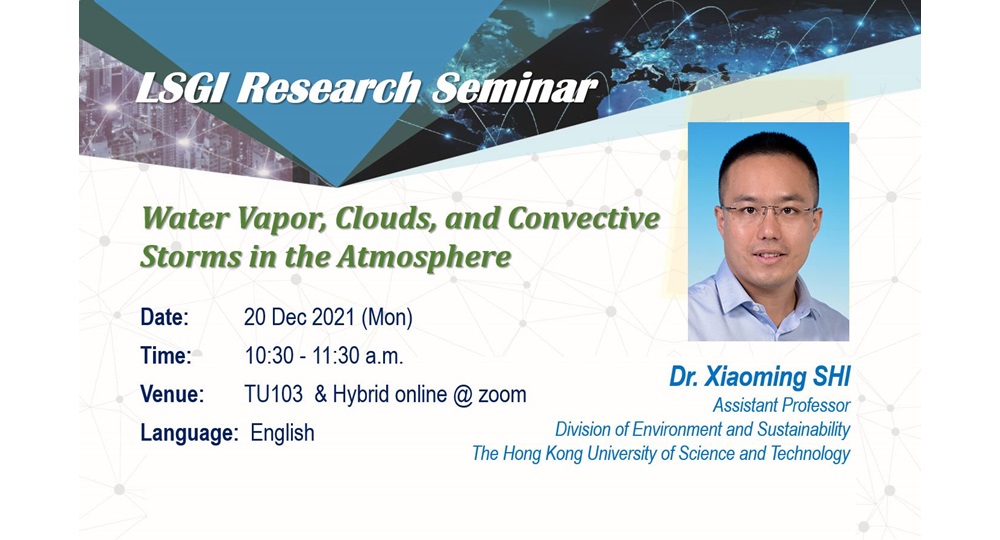Water Vapor, Clouds, and Convective Storms in the Atmosphere

-
Date
20 Dec 2021
-
Organiser
-
Time
10:30 - 11:30
-
Venue
TU103, 1/F, Wing TU, PolyU Map
Speaker
Dr Xiaoming SHI
Enquiry
Ms Anna Choi 3400 8158 anna.choi@polyu.edu.hk
Remarks
All are welcome!
Summary
Water vapor in the atmosphere rarely exceeds 5% of surface air, and cloud droplets and ice are only 1/250 of total atmospheric water. However, the variability in water vapor and its condensed form, clouds, play vital roles in modulating weather and climate. In convective rainstorms, air-sea interaction and boundary layer turbulence determine the amount of moisture supplied to the bottom of storms. Slight variations in water vapor significantly alter the available potential energy for convection as air parcels rise in the atmosphere. Clouds cover 70% of the sky on average. Though being light in mass, their radiative effects are potent forcing to the atmosphere. Depending on the location and amount of cloud droplets and ice, convection in the atmosphere may organize as homogeneous random cells or in a clustered form where an intense large-scale system arises accompanied by dry air surrounding the system. In this discussion, I will demonstrate those powerful effects of water vapor and clouds with real cases and idealized numerical simulations. Detailed physical and dynamic processes will be explained and discussed.
Keynote Speaker
Dr Xiaoming SHI
Assistant Professor
Division of Environment and Sustainability
The Hong Kong University of Science and Technology, Hong Kong
Xiaoming SHI joined the Division of Environment and Sustainability at the Hong Kong University of Science and Technology (HKUST) in 2018 fall. He obtained his Ph.D. degree in atmospheric sciences from the University of Washington in 2015, after which he worked as a postdoctoral scholar in the Department of Civil and Environmental Engineering of the University of California, Berkeley. His research focuses on the simulation of cloud and turbulence and their implications to weather and climate predictions. His teaching interests at HKUST include sustainability, climate science, and climate policy.



